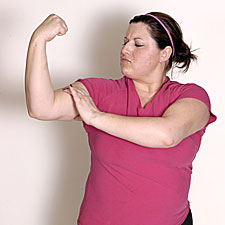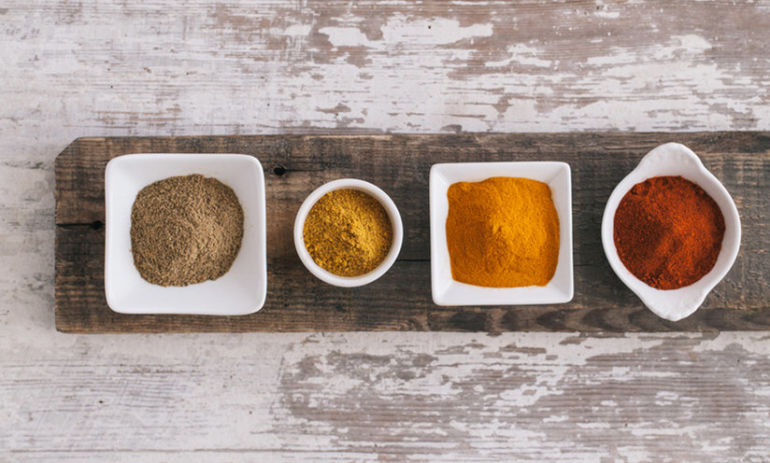Consuming Caffeine Before Working Out
Caffeine has a number of effects that will make a difference during your workout, so much so that it was once on the Olympics' list of forbidden substances, with the blood-level equivalent of 8 cups of coffee enough to get an athlete banned from the Games. Though caffeine is no longer banned, the IOC still tests for its presence, reserving the right to re-ban caffeine if it starts finding elevated levels in a large number of competitors.
What Caffeine Does
Caffeine is a stimulant. It gives you extra stamina and increases your heart rate, improving blood flow from the heart to the rest of your body. Caffeine is ergogenic, helping you to perform difficult physical tasks by eliminating fatigue. It also increases the amount of adrenaline in your system, causing a rush of extra glucose and oxygen to your muscles.
Caffeine has been found to help with two kinds of exercise: endurance activities like a marathon or Iron Man competition, and short, power-intensive activities lasting about 4 to 8 minutes.
Caffeine and Endurance
Caffeine is thought to help endurance athletes by reducing the muscles' consumption of glycogen, the stored energy used up during exercise. There's only a certain amount of glycogen available, and once it's used up, muscle fatigue sets in. Caffeine is thought to delay the onset of muscle fatigue by helping your body use its own fat reserves as energy instead, reducing the glycogen burn rate. This is known as "glycogen sparing." The longer your glycogen lasts, the longer your muscles can function. Caffeine consumed during a marathon has also been found to be an effective aid, helping to release pain-reducing endorphins as well as reducing mental fatigue.
Caffeine and Power
The glycogen sparing effect appears during short term, intense aerobic exercises as well as in longer endurance activities. However, caffeine's major benefit in the short term may lie in the reduction of lactic acid. Lactic acid builds up in the muscles as glycogen is depleted. It's the source of the burning sensation you feel in your muscles during a workout. A 2009 study at the University of Illinois found that 300 milligrams of caffeine taken prior to a workout reduced the amount of burning felt by the subjects in the study. Caffeine also seems to affect the ratio of calcium and potassium ions in muscle cells, making it easier for muscle cells to contract and produce more power.
Timing and Dose
Unfortunately, habitual use of caffeine reduces all the above effects. The body treats caffeine like any other drug, so while the initial effects of caffeine are large, they are reduced over time. A morning cup of joe is okay, but 5 or 6 lattes a day are not, If you are not habituated, studies have shown that your optimal dosage is about 2 to 3 milligrams of caffeine for every kilogram you weigh. For most people, that's going to translate to 2 to 3 cups of coffee. The optimal time? About an hour before your workout seems to give the best effect.
-
Buy Pills With Ephedra - Is Ephedra Legal?
A Utah state court judge declared the FDA ban on Ephedra, Ma-huang,
-
Weight Loss And Nutritional Myths
Myth: Becoming a Vegetarian insures weight loss and healthiness.Tr
-
Eat More And Lose Weight
I bet you read the name of this article and got excited. Well you shou
-
How To Lose Weight Fast/ Real Weight Loss vs. Water Loss
(An essential Key Element Everyone Should Know in Losing Weight Fas
-
Child Obesity And Depression Are Not Alien To One Another
Child obesity and depression are not ali
-
Diet Sodas Losing Weight Is Diet Coke Good Or Dangerous For Healthy Weight Loss
Zero Calorie Diet Sodas: Good Or Bad For Weight Loss?Calorie-free diet
- DON'T MISS
- Top weight loss pills supplements
- Is Weight-Loss Hurting Your Relationship?
- Diet Delivery Service - What To Know Before You Buy
- 15 Strategies for Holiday Eating Without Weight Gain
- The Best Multi Vitamin Benefits
- 3 Weight Loss Help Tips You Should Know About
- Top 6 Lazy Ways To Lose Weight
- Its Never Too Late To Get Back Into Health And Fitness
- The 3 Most Effective Weight Loss Plans
- Best Methods To Lose Body Fat




